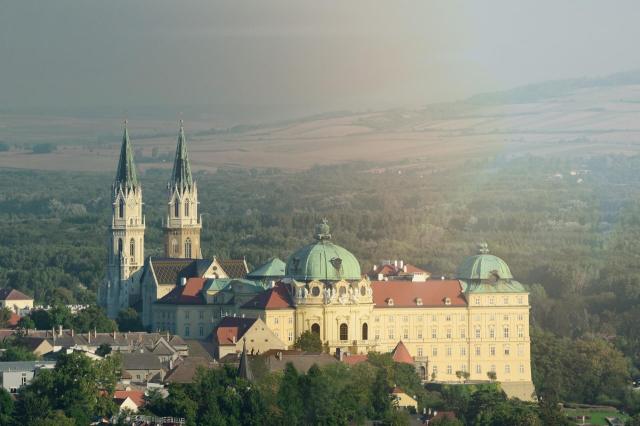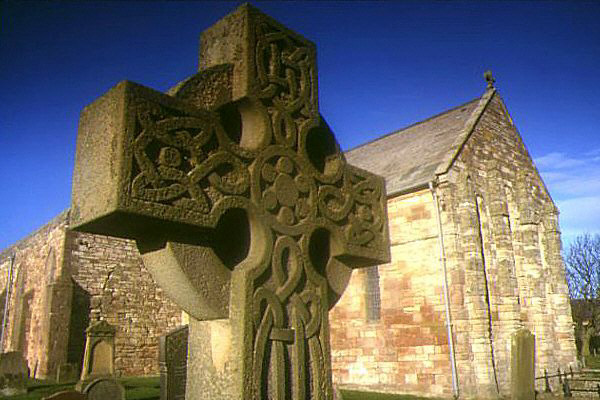The liturgical reforms of the Second Vatican Council represent, not a complete break from the past, but rather the culmination of an intense process of scholarly investigation into the meaning of the liturgy which had been going on for over a century. Among those who worked hard and creatively at applying the investigations of scholars to concrete pastoral situations, few had more of an influence than the Austrian priest and canon regular Pius Parsch (1884-1954).

As a military chaplain during the First World War, Fr. Parsch was discouraged by how listless and passive the laity were about the Mass. This contrasted with his subsequent experience stationed in the Ukraine, where he was impressed with the central role the liturgy played in the devotional life of the eastern-rite Catholics he encountered there. Returning to his Augustinian monastery of Klosterneuberg after the war, he soon began an active program of classes on the Bible and the liturgy for people in the neighboring area. Encouraged by the spiritual appetite he encountered among the laity, these classes soon led to publications which became popular throughout the German-speaking world. This ministry, known as the Volksliturgisches Apostolat, included journals geared for both the clergy and the laity. Eventually Fr. Parsch expanded these articles into books such as The Sacred Year, which were translated into many languages.
Fr. Parsch’s literary output was paralleled by his participation in important liturgical conferences, and extensive personal contact with like-minded reformers throughout the Church. He was among those influential in restoring the Easter Vigil to its proper place as the climax of the Paschal celebration, and was a pioneer in the gradual reintroduction of the vernacular and the Dialogue Mass decades before the Second Vatican Council.
Parsch’s classic The Liturgy of the Mass grew out of his many articles, and is a perfect example of how he combined his own remarkable pastoral insights with the erudite research of scholars such as Fr. Josef Jungmann, SJ. This work, translated into English by Fr. Clifford Howell, SJ, an important voice in the liturgical movement in his own right, became for many priests and laity an entry point into new perspectives on the history and meaning of the Mass. In his preface to his final edition of this work, Fr. Parsch set forth his reason for writing this book, namely that it might help Catholics and also their “separated brethren” to come to a deeper appreciation and rediscovery of the “treasure of great price”, the liturgy:
“Another such treasure, and truly one of great price, in the field of the Church is the Holy Sacrifice; yet for so many Christians it lies buried and unappreciated. Those of us who long to live with the Church and to offer sacrifice with her, we have found this treasure, and our one concern now is to lay hold of it and to make it our own.”1
Characteristically Fr. Parsch anchors his discussion of the Mass in Scripture. In remarkably concise and accessible prose, he sets forth a discussion of Old Testament prefigurations of the Eucharist. He summarizes the rich scriptural imagery from both testaments which underlies almost every phrase of the Roman Rite, a task he continues in subsequent chapters devoted to particular parts of the Mass. In doing so Fr. Parsch persuasively and enchantingly confronts us with what is the central point of all the pioneers of the Liturgical Movement and their successors today:
“From such considerations as these there emerges some inkling of the stupendous worth of the Mass, as the greatest, the most precious treasure that we Christians have on earth. The Mass must be, as it were, the High Altar in the Cathedral of our souls. Every other devotion, all other festivities of the Church, are but side-altars which, however sacred and beautiful they may be, must not obscure our view of the great High Altar. If we love the Liturgy we will set ourselves with all eagerness to gain a wider and deeper understanding of this most sacred mystery, the Lord’s Supper, and make it the focal centre of the whole of our spiritual life.”2
1. Pius Parsch. The Liturgy of the Mass. 3rd Edition. St. Louis: B. Herder, 1957. p. xiii.
2. Ibid, p. 35.

Klosterneuburg abbey


